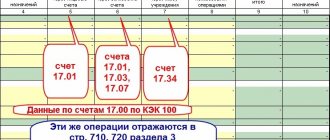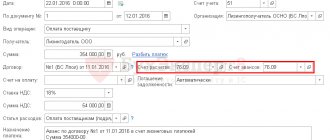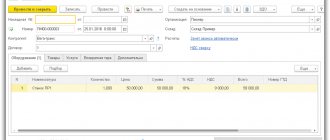- November 25, 2018
- Accounting
- Yulia Abdulbarova
Depreciation is one of the most popular accounting terms. But what exactly is it? In this article we will provide the answer to this question. We will also analyze which means are not subject to depreciation, and what, on the contrary, is depreciated. Let's talk a little about the useful life of property and look at how depreciation is calculated.
Concept
All material resources wear out over time. In practice, there are two types of wear:
- Physical. The product failed and began to work intermittently and with other breakdowns.
- Moral. The product, method, process, algorithm are outdated and do not meet modern requirements.
Therefore, it is fair that in accounting the initial cost of fixed assets, as well as any intangible assets as they wear out, is transferred in parts to the cost of products that are produced or provided by a company or enterprise.
It is this transfer process that is called depreciation. Moreover, in an accounting context, depreciation is the amount of amortized funds that have been accrued from the moment they were used.
What objects are not subject to depreciation? We will definitely look into this further.
https://youtu.be/VpA_aW3URoY
General division
The property of an individual entrepreneur or organization owned by the taxpayer and generating income for him will be considered depreciable. What is not subject to depreciation? Accordingly, property that does not bring profit to its owner.
In accounting documents, the concept of depreciable and non-depreciable property is revealed deeply and quite clearly. Which fixed assets are not subject to depreciation? This is land, natural resources, inventories, unfinished buildings, goods, securities, as well as financial resources for specific transactions.
But property that is directly related to production capacity will certainly be subject to depreciation in accordance with Federal Law No. 206-FZ dated November 29, 2012.
What is considered depreciable property?
First of all, let’s define what can be classified as depreciable objects. In the Russian Federation, this is property that has a useful life of more than 12 months, and whose initial cost exceeds 40 thousand rubles.
Which fixed assets are not subject to depreciation? Everything that costs less than the specified amount with a service life of less than a year, as well as what goes beyond the scope of the above:
- Investments of a capital nature made by the lessee with the permission of the lessor in relation to fixed assets that have been leased and which have specific improvements.
- Significant investments by an organization in leased property that were made after receiving a loan with the approval of the organization that leased the fixed assets.
Calculation of depreciation for residential apartments on the balance sheet
Residential apartments are listed as fixed assets on the company's balance sheet. What is the procedure for calculating depreciation in this case?
Residential apartments are listed as fixed assets on the company's balance sheet.
What is the procedure for calculating depreciation in this case? 1. Accounting
The procedure for calculating depreciation of fixed assets in accounting is regulated by the Accounting Regulations “Accounting for Fixed Assets” PBU 6/01, approved by Order of the Ministry of Finance of the Russian Federation dated March 30, 2001 No. 26n (hereinafter referred to as the Regulations on Accounting for Fixed Assets). In accordance with clause 17 of the Regulations on accounting for fixed assets, the cost of fixed assets is repaid through depreciation, unless otherwise established by these Regulations. For housing facilities (residential buildings, dormitories, apartments, etc.), external improvement facilities and other similar facilities (forestry, road facilities, specialized shipping facilities, etc.), as well as productive livestock, buffaloes, oxen and deer, perennial plantings that have not reached operational age, the cost is not repaid, i.e. no depreciation is charged. For the specified fixed assets and fixed assets of non-profit organizations, depreciation is calculated at the end of the reporting year according to the established depreciation rates. The movement of depreciation amounts on the specified objects is accounted for in a separate off-balance sheet account.
2. Property tax of
enterprises
The procedure for calculating and paying property tax is regulated by the Law of the Russian Federation dated December 13, 1991 No. 2030-1 “On the property tax of enterprises” (with amendments and additions), as well as the Instruction of the State Tax Service of the Russian Federation dated June 8, 1995 No. 33 “ On the procedure for calculating and paying enterprise property tax to the budget" (hereinafter referred to as the "Instructions on Property Tax"). In accordance with clause 4 of the “Instructions on Property Tax”, the tax base for the property tax of enterprises is determined based on the value of fixed assets, intangible assets, inventories and costs reflected in the balance sheet assets of the accounting accounts, incl. according to accounts 01 “Fixed Assets” and 03 “Income Investments in Material Assets” (minus the amount of depreciation (wear and tear)). If depreciation is not provided for individual objects of fixed assets, then the amount of depreciation is determined based on the uniform norms of depreciation charges for the complete restoration of fixed assets, approved in the prescribed manner (Resolution of the Council of Ministers of the USSR dated October 22, 1990 No. 1072). Thus, the tax base for property tax includes the residual value of residential apartments, calculated as the difference between the original (replacement) cost and the amount of depreciation according to uniform depreciation rates for the complete restoration of fixed assets.
Corporate
income tax The procedure for calculating and paying corporate income tax is regulated by Chapter 25 of the Tax Code of the Russian Federation. In accordance with Art. 252 of the Tax Code of the Russian Federation, for profit tax purposes, the taxpayer reduces the income received by the amount of expenses incurred in accordance with the provisions of this chapter. Expenses, depending on their nature, as well as the conditions for implementation and areas of activity of the organization, are divided into expenses associated with production and sales, and non-operating expenses. In accordance with paragraph 2 of Art. 253 of the Tax Code of the Russian Federation, costs associated with production and (or) sales are divided into: - material costs; — labor costs; — the amount of accrued depreciation; - other expenses. The composition of depreciable property and the procedure for determining its value are defined in Art. 256, 257 Tax Code of the Russian Federation. In accordance with Art. 256 of the Tax Code of the Russian Federation, depreciable property for the purposes of this chapter is property, results of intellectual activity and other objects of intellectual property that are owned by the taxpayer and are used by him to generate income and the cost of which is repaid by calculating depreciation. In accordance with Art. 257 of the Tax Code of the Russian Federation, fixed assets for the purposes of this chapter are understood as part of property with a useful life exceeding 12 months, used as means of labor for the production and sale of goods (performing work, providing services) or for managing an organization. Thus, expenses that reduce the tax base for income tax do not include the amount of depreciation deductions for residential apartments, since these fixed assets are not used as means of labor for the production and sale of goods (performing work, providing services) or for management organization.
Select the fragment with the error text and press Ctrl+Enter
We discuss the news here. Join us!
Other depreciable objects
According to the legislation of the Russian Federation, the following objects are subject to depreciation:
- Property owned by a budget organization.
- Property that was purchased with budget funds.
- Property that was created through targeted financial proceeds.
It is also important to remember that depreciable property that was received by one unitary enterprise from the owner of another similar enterprise as part of economic supervision or operational management is certainly subject to depreciation from the first in the manner prescribed by law.
The same conditions apply to property received by an investor organization from the owner of the property. This is dictated by the legal documents of the Russian Federation on agreements in the field of investments related to the sale of public utility services.
But it is important to remember that not all fixed assets are subject to depreciation. We will talk about exceptions further.
What is excluded?
We dismantled the property that is subject to depreciation. Two types of property need to be excluded from this list:
- Valuable objects of a budget organization. The exception will be those acquired for entrepreneurial work activities.
- Property of non-profit institutions. That which was received in the form of targeted proceeds or acquired with funds from the main proceeds, used for the purpose of carrying out certain non-commercial activities.
Excluded objects
Are securities not subject to depreciation? Let's look at specific examples of objects that, according to Russian legislation, will not be depreciated:
- Items that were created were purchased using funds from the budget as part of targeted funding.
- Objects related to external improvement.
- Works of art purchased by the organization. Their price is taken into account as part of all kinds of other expenses that are associated with production and sales. In this case, the size of the entire cost at the time of purchase is taken into account.
- Property that was created or purchased using funds that were received by the organization free of charge.
- Acquired rights to intellectual products. Other things related to similar property, in cases where accruals under the agreement are made in the form of payments throughout the entire term of its validity.
To argue or not?
The courts also agree with the above position of the financial department, and at the highest level. An example is the Ruling of the Supreme Court of the Russian Federation dated July 17, 2018 No. 307-KG18-1836, which was included in the Review of Judicial Practice of the Supreme Court of the Russian Federation No. 4 (2018), approved by the Presidium of the Supreme Court of the Russian Federation on December 26, 2018.
Tax authorities’ claims and company’s arguments
On the balance sheet of the unitary enterprise were vehicles purchased from the budget of a constituent entity of the Russian Federation and transferred to the enterprise for economic management. The company charged depreciation on the said property.
During the audit, tax authorities excluded accrued depreciation from expenses and, accordingly, assessed additional income tax. In making this decision, the tax authority was guided by sub. 3 p. 2 art. 256 of the Tax Code of the Russian Federation, according to which property acquired (created) using budget funds for targeted financing is not subject to depreciation.
The company did not agree with the tax authorities. In his opinion, the main conditions for classifying depreciable property as not subject to depreciation in accordance with subparagraph. 3 p. 2 art. 256 of the Tax Code of the Russian Federation are two factors: the acquisition of this property at the expense of the budget and its ownership. In this case, the controversial fixed assets were purchased at the expense of the regional budget not by the enterprise, but by the owner of the enterprise’s property.
Based on the norms of the current legislation, a unitary enterprise, having received property under economic management, does not become its owner, therefore the disputed property is subject to depreciation by virtue of clause 1 of Art. 256 Tax Code of the Russian Federation.
Fixed assets not subject to depreciation
It is not true that all fixed assets are subject to depreciation. Let's present a list of exceptions:
- OS that were received or transferred under relevant agreements for free use.
- Objects placed into conservation for more than three months.
- Facilities undergoing reconstruction and modernization for more than 12 months.
- OS registered in the international list of Russian ships.
After the reactivation of fixed assets, depreciation on them can be accrued in the order in force before the start of this process. It is also important to remember that in the case of conservation, the useful life of the object is extended for a period equal to its duration.
Depreciation of fixed assets in the absence of income from use
The Ministry of Finance of Russia, in letter No. 03-03-06/1/34012 dated April 27, 2020, clarifies the calculation of depreciation for income tax purposes in relation to fixed assets in the absence of income from their use.
Depreciable property
The costs associated with production and sales include the amount of depreciation accrued:
- on fixed assets for production purposes;
- on intangible assets that are used in the production activities of the company.
Property with a useful life of more than 12 months and an original cost of more than 100,000 rubles (Clause 1 of Article 256 of the Tax Code of the Russian Federation) is considered depreciable.
The amount of depreciation that should be charged for fixed assets and intangible assets depends both on the service life of the depreciable property and on its original cost.
What is not subject to depreciation
Depreciation in tax accounting is calculated in the manner prescribed by Articles 256 - 259.3 of the Tax Code of the Russian Federation.
Paragraph 3 of Article 256 of the Tax Code excludes fixed assets from depreciable property:
- transferred by decision of the organization’s management to conservation for a period of more than three months;
- which, by decision of the management of the organization, are undergoing reconstruction and modernization for a period of more than 12 months, with the exception of cases where fixed assets in the process of reconstruction or modernization continue to be used by the taxpayer in activities aimed at generating income.
When an object of fixed assets is re-mothballed, depreciation on it is accrued in the order that was in effect before the moment of its mothballing.
As officials explain, this norm (clause 3 of Article 256 of the Tax Code of the Russian Federation) does not require stopping the calculation of depreciation in the absence of income from the use of depreciable property for any period of time.
Thus, the Tax Code does not allow arbitrary exclusion of property from depreciation, including based on the criterion of temporary non-receipt of income.
Difference between tax and accounting
In both tax and accounting accounting, depreciation is calculated on fixed assets. However, some fixed assets do not need to be depreciated. In tax accounting, these are objects that are not depreciable. For accounting purposes, such property is listed in PBU 6/01 “Accounting for fixed assets.”
The list of fixed assets for which depreciation is not charged in accounting and tax accounting differs. Here is a comparison table:
| Type of property | Depreciation according to accounting rules | Depreciation according to tax accounting rules |
| Fixed assets that are not used to generate income, including external improvement objects | Accrued (clause 23 of PBU 6/01) | Not accrued (Clause 1, Article 256 of the Tax Code of the Russian Federation) |
| Fixed assets transferred to conservation for a period exceeding three months | Not accrued (clauses 17 and 23 of PBU 6/01) | Not accrued until December 31, 2020 (clause 3 of Article 256 of the Tax Code of the Russian Federation). From January 1, 2020 - accrued (Federal Law of September 29, 2020 No. 325-FZ) |
| Fixed assets of non-profit organizations | Not accrued (clause 17 of PBU 6/01). In accounting for such types of property, depreciation is accrued at the end of each year. The amount of depreciation is taken into account in off-balance sheet account 010 “Depreciation of fixed assets” | It is not accrued if the property was purchased using targeted proceeds and is used for non-commercial activities (Clause 2 of Article 256 of the Tax Code of the Russian Federation) |
| Housing facilities (residential buildings, dormitories, apartments, etc.) | Accrued provided that these objects are taken into account as part of profitable investments in material assets (clause 17 of PBU 6/01) | Accrued if objects are used to generate income |
| Objects of fixed assets whose consumer properties do not change over time. Including: – land plots; – environmental management facilities; – museum objects and museum collections, etc. | Not accrued (clause 17 of PBU 6/01) | Not accrued (clause 2 of article 256 of the Tax Code of the Russian Federation) |
| Fixed assets that have been under reconstruction or modernization for more than a year | Not accrued (clause 23 of PBU 6/01) | Not accrued, except in cases where the objects continue to be used in activities aimed at generating income (clause 3 of Article 256 of the Tax Code of the Russian Federation) |
| Fixed assets worth more than 40,000 rubles, but less than 100,000 rubles. | Accrued (clause 5 of PBU 6/01) | Not accrued (clause 1 of Article 256 of the Tax Code of the Russian Federation). |
| Objects of unfinished capital construction | Not accrued (clause 3 of PBU 6/01) | Not accrued (clause 2 of article 256 of the Tax Code of the Russian Federation) |
| Capital investments in leased fixed assets | Accrued if, in accordance with the concluded lease agreement, these capital investments are the property of the tenant (clause 5 of PBU 6/01; paragraph 8 of clause 10 of the Methodological Guidelines for Accounting for Fixed Assets, approved by Order of the Ministry of Finance of Russia dated November 13, 2003 No. 91n) | Accrued only on the condition that capital investments are made in the form of inseparable improvements made by the tenant with the consent of the lessor (Clause 1 of Article 256 of the Tax Code of the Russian Federation) |
| Productive livestock | Accrued (clause 5 of PBU 6/01) | Accrued (clause 1 of article 256 of the Tax Code of the Russian Federation) |
| Vessels registered in the Russian International Register of Ships | Accrued (clauses 17 and 23 of PBU 6/01) | Not accrued (clause 3 of article 256 of the Tax Code of the Russian Federation) |
What are fixed assets?
Is land subject to depreciation? We figured out that no. But what about the basic tools we mentioned above?
Within the framework of taxation, they mean property used as labor tools for the creation of goods, products and the sale of services. And also used to manage this organization. Its initial cost should not be lower than 40 thousand rubles.
The initial cost of a fixed asset must be calculated taking into account the costs of its acquisition. This can be the construction of the object, delivery, manufacturing and any other bringing to a state in which it has become suitable for use. Fixed assets that were received by the organization free of charge and identified during the inventory process in the form of the amount at which the property was valued are not subject to depreciation. Excise taxes and value added taxes are excluded from the cost of fixed assets.
Intangible assets
Are intangible assets subject to amortization or not? Let's first figure out what it is.
These include products of intellectual activity acquired or created by taxpayers (any manifestations of mental labor). They can give their owner exclusive rights and be used to create tangible products, that is, to produce work and services provided by the organization, to manage this institution for quite a long time - more than 12 months.
Something can be recognized as an intangible asset in the following cases:
- With its help it is possible to obtain economic profit.
- There are properly executed documents that confirm both the existence of the intangible asset itself and the exclusive rights to it.
Mainly intangible assets include the following:
- The right to a patent model, invention, industrial design. It is important that all of the above belong specifically to the patent holder.
- The unique right of a developer or other owner to use special programs, databases for electronic computers, computers.
- Copyright exclusive right allowing its owner to use integrated circuit topologies.
- Awarding a trademark for services, a trademark for products, assigning a unique name to the place of origin of goods, forming a brand name for all of the above.
- The exclusive right of the holder of a patent for achievements in the breeding field.
It is important to understand that intangible assets, like fixed assets, can be depreciable or non-depreciable. Is land subject to depreciation? Let us remind the reader once again that no.
Expenses in the form of depreciation. Intangible assets
Russian tax portal
In order to understand the order in which depreciation deductions should be expensed, let us turn to the definition - what is depreciable property?
Depreciable property is property, results of intellectual activity and other objects of intellectual property that are owned by the taxpayer, used by him to generate income and the cost of which is repaid by calculating depreciation. Depreciable property is property with a useful life of more than 12 months and an original cost of more than 40 thousand rubles.
Depreciable property received by a unitary enterprise from the owner of the property of the unitary enterprise for operational management or economic management is subject to depreciation at this unitary enterprise.
Depreciable property received by an investor organization from the owner of the property in accordance with the legislation of the Russian Federation on investment agreements in the field of providing public services is subject to depreciation from this organization during the validity period of the investment agreement.
Depreciable property is recognized as capital investments in leased fixed assets in the form of inseparable improvements made by the lessee. But such improvements must be made with the consent of the landlord. Capital investments in fixed assets provided under a gratuitous use agreement in the form of inseparable improvements made by the borrower organization with the consent of the lender organization are also recognized as depreciable property.
Depreciable property received by an organization from the owner of the property or created in accordance with the legislation of the Russian Federation on investment agreements in the field of providing public services or the legislation of the Russian Federation on concession agreements is subject to depreciation from this organization during the validity period of the investment agreement or concession agreement.
Land and other natural resources (water, subsoil and other natural resources), as well as inventories, goods, capital construction projects in progress, securities, financial instruments of futures transactions (including forwards, futures contracts, option contracts) are not subject to depreciation ).
are not subject to depreciation :
1) property of budgetary organizations, with the exception of property acquired in connection with the implementation of entrepreneurial activities and used to carry out such activities;
2) property of non-profit organizations received as earmarked proceeds or acquired at the expense of earmarked proceeds and used to carry out non-commercial activities;
3) property acquired (created) using budget funds for targeted financing. This norm does not apply to property received by the taxpayer during privatization;
4) external improvement facilities (forestry facilities, road facilities, the construction of which was carried out with the involvement of sources of budgetary or other similar targeted funding, specialized navigation facilities) and other similar facilities;
6) purchased publications (books, brochures and other similar objects), works of art. In this case, the cost of purchased publications and other similar objects, with the exception of works of art, is included in other expenses associated with production and sales in full at the time of acquisition of these objects;
7) property acquired (created) from funds received in accordance with subparagraph. 14, 19, 22, 23 and 30 paragraph 1 of Art. 251 of the Tax Code of the Russian Federation, as well as the property specified in subparagraph. 6 and 7 clause 1 art. 251 Tax Code of the Russian Federation;
 acquired rights to the results of intellectual activity and other objects of intellectual property, if, under an agreement for the acquisition of these rights, payment must be made in periodic payments during the validity period of the specified agreement.
acquired rights to the results of intellectual activity and other objects of intellectual property, if, under an agreement for the acquisition of these rights, payment must be made in periodic payments during the validity period of the specified agreement.
Fixed assets are excluded from depreciable property for profit tax purposes:
– transferred (received) under contracts for free use;
– transferred by decision of the organization’s management to conservation for a period of more than three months;
– which, by decision of the management of the organization, are undergoing reconstruction and modernization for a period of more than 12 months.
When an object of fixed assets is re-mothballed, depreciation on it is accrued in the order that was in effect before the moment of its mothballing, and the useful life is extended for the period that the object of fixed assets is in mothballing.
Intangible assets are the results of intellectual activity acquired and (or) created by the taxpayer and other objects of intellectual property (exclusive rights to them), used in the production of products (performance of work, provision of services) or for the management needs of the organization for a long time (lasting over 12 months).
To recognize an intangible asset, it is necessary to have the ability to bring economic benefits (income) to the taxpayer, as well as the availability of properly executed documents confirming the existence of the intangible asset itself and (or) the taxpayer’s exclusive right to the results of intellectual activity (including patents, certificates, other documents of protection , agreement of assignment (acquisition) of a patent, trademark).
Intangible assets include:
1) the exclusive right of the patent holder to an invention, industrial design, utility model;
2) the exclusive right of the author and other copyright holder to use a computer program, database;
3) the exclusive right of the author or other copyright holder to use the topology of integrated circuits;
4) exclusive right to a trademark, service mark, appellation of origin of goods and company name;
5) the exclusive right of the patent holder to selection achievements;
6) possession of know-how, a secret formula or process, information regarding industrial, commercial or scientific experience.
The initial cost of depreciable intangible assets is determined as the sum of the costs of their acquisition (creation) and bringing them to a state in which they are suitable for use, excluding VAT and excise taxes.
The value of intangible assets created by the organization itself is determined as the amount of actual expenses for their creation, production (including material expenses, labor costs, expenses for services of third-party organizations, patent fees associated with obtaining patents, certificates), excluding amounts taxes included as expenses.
Intangible assets do not include:
1) research, development and technological work that did not produce a positive result;
2) intellectual and business qualities of the organization’s employees, their qualifications and ability to work.
Accounting activities
In accounting, depreciable property is distributed by employees into certain groups. The criterion here is its useful life.
The first step is to exclude fixed assets that are not subject to depreciation, that is, those whose initial cost is below 40 thousand rubles, as well as those that will begin to generate economic profit only in the future.
For tax accounting, depreciation in accounting is calculated in one of two main ways - linear or non-linear. For example, inventory will definitely be subject to depreciation.
The taxpayer has the right to include in the costs of the reporting tax period expenses for capital investments in an amount not exceeding 10% of the original price of fixed assets.
As you already remember, the exception here will be those fixed assets that were received by the organization free of charge, as well as costs associated with modernization, reconstruction, completion, technical re-equipment and additional equipment.
Non-title depreciation
PROBLEM . The organization bought the building. The parties signed the acceptance certificate. The title to it has not yet been registered, but the property is already being used in business. The difficulty here is caused by such questions. From what point should depreciation be calculated? Do I need to pay property tax? And what happens if the registration documents are returned to the company for revision?
ACCOUNTING
In accounting, the property for which ownership must be registered is taken into account as part of capital investments. This condition is contained in clause 41 of the Regulations on accounting and financial reporting in the Russian Federation (approved by order of the Ministry of Finance of Russia dated July 29, 1998 No. 34n). However, the organization can charge depreciation on it. This right is given to her by paragraph 52 of the Methodological Instructions for Accounting of Fixed Assets, approved by Order of the Ministry of Finance of Russia dated October 13, 2003 No. 91n. To calculate depreciation, you need to draw up primary documents for acceptance and transfer, put the facility into operation and submit a package of documents for registering ownership.










